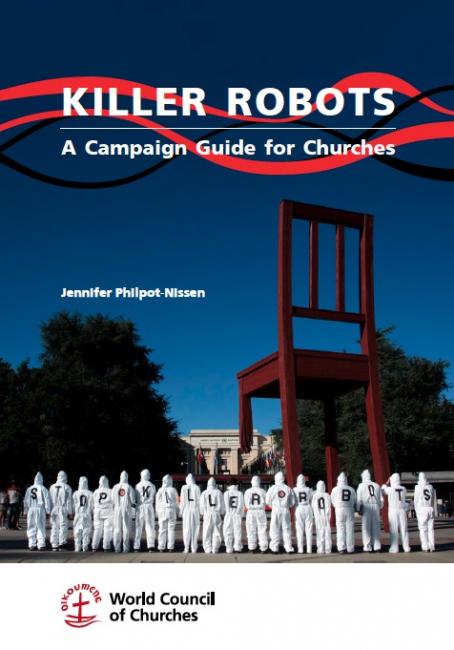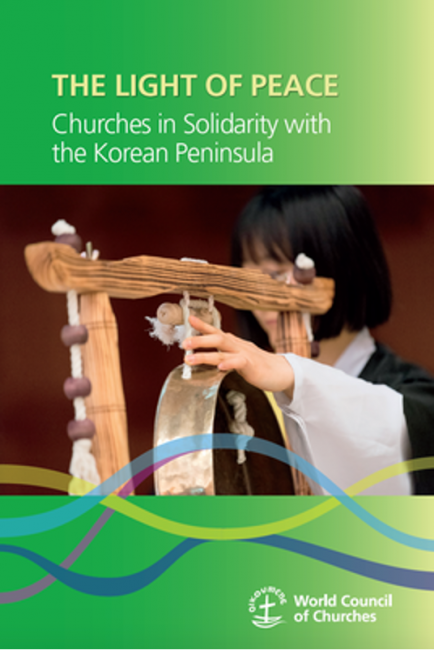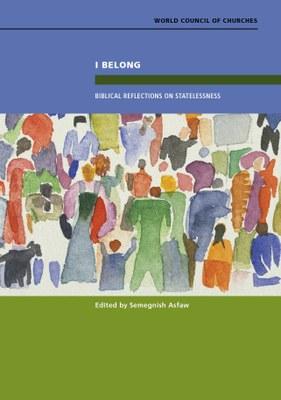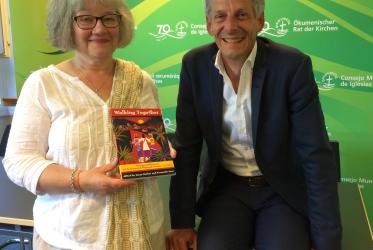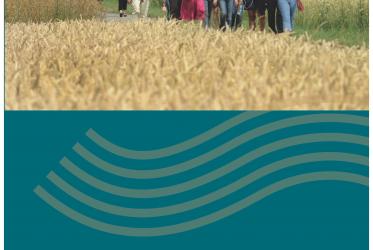Displaying 1 - 20 of 21
Perspectives from an International Consultative Process
19 August 2022
"Light of Peace" book now available in Korean
06 January 2021
I Belong: Biblical Reflections on Statelessness
Biblical Reflections on Statelessness
12 October 2020
WCC condemns attack at Hanukkah celebration in New York City
29 December 2019
Konrad Raiser shares ecumenical journey of transformation
06 February 2018
Christian and Muslim promote spiritual solidarity
14 June 2017
WCC climate change group plans advocacy strategy
10 October 2016
Edward Dommen receives Colladon award for A Peaceable Economy
14 December 2015
WCC Annual Review 2014
28 April 2015
Panel revisits Dietrich Bonhoeffer’s ecumenical legacy
05 March 2015


